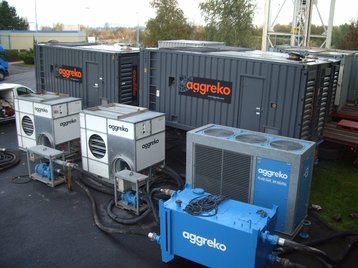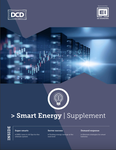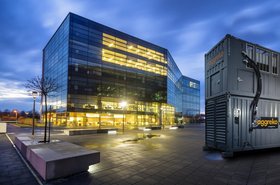According to the Institute for Supply Management, 57 percent of companies have noted longer lead times for tier one China-sourced components, with average lead times more than doubling compared to the end of 2019. For data centers, this kind of delay in critical equipment could result in serious issues for operators, providers and the companies they represent.
Whether in the construction phase or undergoing maintenance, data center operations can grind to a halt if the supply of critical equipment is unable to be fulfilled. Especially for smaller companies, halting activity and the ensuing downtime can be extremely costly, particularly at times like this where data centers are so heavily relied upon.
During the recent months, data center usage has grown exponentially, with ever more individuals and organizations relying on the ability to connect via video call, work remotely and access data instantly. Uptime for operators is therefore more important than ever, meaning any delays in maintenance or construction may be affecting a large quantity of critical facilities.
Travel restrictions
As countries began introducing lockdown measures preventing travel, naturally many manufacturing facilities producing components for equipment in data centers ceased or vastly reduced operations. This has particularly affected those coming from China – reduced production of components coupled with logistics issues has significantly impacted supply over the course of lockdown.
As well as impeding supply of critical parts, travel restrictions have also seriously affected workforces. For instance, contractors based in Ireland who have been involved in construction in the Nordics have not been able to access their sites, bringing those projects to a halt. Though some lifting of restrictions has allowed local projects to start up again with stringent measures in place, the lack of international travel has seriously impeded the ability to construct and maintain data centers in different regions for some companies.
Keeping it cool
Given that construction and routine maintenance have been paused, some key processes in the timeline of a data center have too experienced setbacks. For instance, loadbank testing of critical infrastructure during commissioning of a data center, or as a maintenance procedure for existing facilities, has too been put on hold across market.
While parts of critical infrastructure are awaiting key components to continue their safe and efficient operation, data center operators are finding themselves in need of supplementary equipment. Couple this with rising temperatures across the globe, cooling systems are being pushed to the limits of their capability when demand has been consistently high.
In some cases, implementing a temporary cooling system has been a lifeline for data centers, where any downtime due to equipment failure is not an option. Hiring the equipment ensures that the facility is not affected by supply chain issues for duration of elevated usage and high temperature, avoiding costly downtime. Further to this, it can also save further costs associated with purchasing permanent supplementary cooling infrastructure by paying only for equipment when it is needed.
Safe implementation
Making sure that data center operations can continue while protecting the people on the ground is a delicate balance, and one of high importance. Tasking an equipment hire specialist with implementing temporary cooling or power solutions can take the pressure off waiting for vital components.
Using video consultations with operators and providers, companies such as Aggreko can determine the requirements of the facility and provide the sufficient level of equipment from their own fleet. As rental companies often have existing fleets of equipment across the globe, data center companies can solve problems in their facility almost immediately.
Given the critical nature of the industry and the equipment that is to be implemented, local engineers are able to install the hire cooling and power equipment into a site using the correct social distancing measures. These engineers should adhere to the strictest guidelines, even if the local restrictions aren’t as rigorous, to ensure that safety is paramount.
The data center industry is vital to most activity that takes place in the modern world and now more than ever operators and providers must mitigate and prevent any delays or failures. In a supply chain dilemma, it is important to prepare for the worst and make sure there are measures such as equipment hire in place to prevent the worst from happening.





